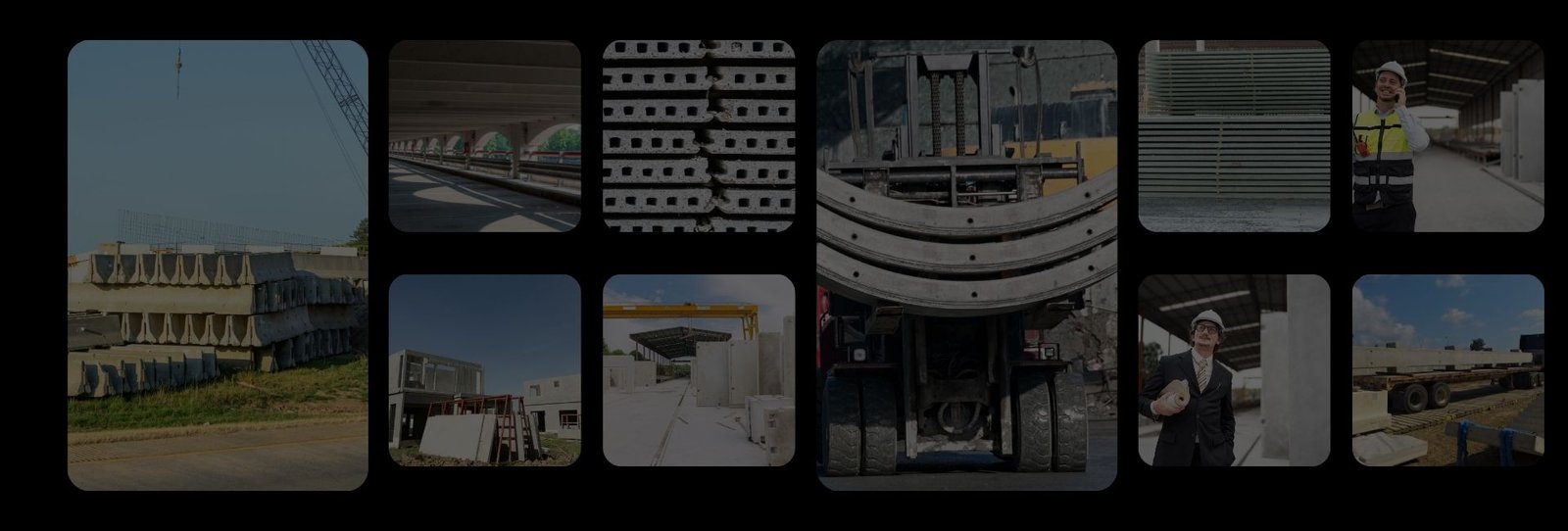Scaling a manufacturing business in the precast concrete sector requires meticulous planning and the right technological tools. Enterprise Resource Planning (ERP) systems are integral for managing this growth effectively.
ERP solutions streamline operations, enhance productivity, and provide real-time data visibility essential for making informed decisions. This guide outlines how to leverage ERP to scale your precast concrete manufacturing business.

Understanding ERP and Its Benefits
ERP systems integrate various business processes, including finance, human resources, supply chain, and manufacturing, into a unified system. For the precast concrete industry, an ERP can manage everything from material procurement to production scheduling and quality control.
Key Benefits:
- Improved Efficiency: Automates routine tasks and reduces manual errors.
- Enhanced Data Visibility: Provides real-time insights into operations and performance.
- Scalability: Supports business growth without the need for major changes in infrastructure.
- Better Decision Making: Facilitates informed decisions with accurate data and analytics. Real-time data and analytics provided by ERP systems enable better decision-making, with a reported 20-25% improvement in forecasting accuracy.
- Cost saving: Companies in the precast concrete industry can achieve cost savings of 8-12% by adopting ERP systems, primarily through improved inventory management, reduced waste, and optimized production processes.
Specific Needs of Precast Concrete Manufacturing
Precast concrete manufacturing has unique requirements, such as managing the production of custom concrete elements, ensuring quality control, and scheduling deliveries. An ERP system tailored for manufacturing can address these needs.
Core Functionalities:
- Production Management: Streamlines production processes, from design to completion. Enhanced order fulfillment accuracy and speed, with ERP systems contributing to a 10-15% increase in on-time deliveries.
- Quality Control: Ensures that every product meets the required standards. ERP systems help in maintaining stringent quality control standards, reducing defects by 10-15%
- Inventory Management: Keeps track of raw materials and finished goods. Precast concrete companies using ERP systems have reported a 20-25% improvement in inventory accuracy and a reduction in stockouts and overstock situations.
- Supply Chain Management: Manages supplier relationships and logistics efficiently.

Choosing the Right ERP System
Selecting an ERP system involves evaluating its features, scalability, and compatibility with existing processes. Epicor ERP is a robust choice for manufacturers, offering deep industry-specific functionalities and seamless integration capabilities.
Considerations:
- Industry-Specific Features: Ensure the ERP has functionalities tailored to precast concrete manufacturing.
- Integration Capabilities: Check for compatibility with current systems and ease of integration.
- Scalability: The system should support future growth and expansion.
- Training and Support: Look for comprehensive training programs and ongoing support services

Implementing ERP in Your Manufacturing Business
Implementation is a critical phase where planning and execution must be meticulous to avoid disruptions. Index Infotech, with its highly trained professionals, specializes in precast ERP implementation, ensuring a smooth and efficient transition for your business. A survey by Construction Executive reported that approximately 60% of precast concrete manufacturers have implemented or are in the process of implementing ERP systems.
Steps:
- Assessment and Planning: Conduct a thorough assessment of your current processes and define clear goals for the ERP implementation.
- Customization: Tailor the ERP system to meet your specific business needs.
- Data Migration: Carefully plan the transfer of existing data to the new system.
- Training: Provide extensive training for all users to ensure they can effectively use the new system.
- Go-Live and Support: Plan for a phased go-live approach and ensure continuous support to address any issues promptly


Leveraging ERP for Business Growth
Post-implementation, it’s crucial to continuously leverage the ERP system to drive growth. Use the data and insights provided by the ERP to make strategic decisions, optimise operations, and explore new business opportunities.
Strategies:
- Continuous Improvement: Regularly review and optimise processes based on ERP data.
- Scalable Operations: Use the ERP’s scalability features to expand your production capacity as demand grows.
- Innovation and Development: Leverage ERP analytics to innovate and develop new products or services.
- Customer Satisfaction: Improve customer service by ensuring timely delivery and high-quality products
Scaling your precast concrete manufacturing business with ERP is not just about adopting new technology but about transforming your operations for better efficiency and growth. With the right ERP system like Epicor, you can streamline your processes, gain valuable insights, and position your business for long-term success.
At Index Infotech, we simplify the complexities of modern business operations with our expertise in Epicor ERP implementation. As an awarded partner in MENA and North America, our team of over 60 consultants delivers tailored solutions to meet your specific needs. From planning and training to data migration and customization, we ensure a seamless transition to enhance productivity and drive success.
Ready to transform your operations with a robust ERP solution? Contact us at [info@indexinfotech.com] to schedule a consultation or demo.

